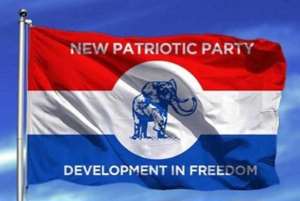
The New Patriotic Party (NPP)’s first 100 days in opposition have been a fascinating study in political dynamics. While they’ve sought to position themselves as champions of accountability, their critiques of the National Democratic Congress (NDC) are often undermined by unresolved controversies from their own tenure. Compounding this is their apparent reluctance to fully embrace their role as an opposition party, a denial that has shaped their narrative and strategy in significant ways.
Economic Stability: Words vs. Actions
The NPP has been relentless in its criticism of the NDC’s economic policies, questioning the sustainability of measures like the stabilization of the cedi and the implementation of a new budget. However, their own tenure was marked by significant economic missteps. The Power Distribution Services (PDS) scandal, which led to the loss of $190 million in energy sector investments, remains a glaring example of governance lapses. Similarly, the COVID-19 expenditure scandal exposed financial mismanagement, with funds for critical resources like ambulances and vaccines unaccounted for.
Recent developments have only added to this narrative. The NPP’s refusal to acknowledge their role in Ghana’s economic challenges, including soaring inflation and a depreciating cedi during their administration, contrasts sharply with their current critiques of the NDC. This selective memory not only undermines their credibility but also highlights a broader pattern of deflection.
Judicial Independence: A Shifting Narrative
The judiciary has become a focal point of political discourse, with the NPP accusing the NDC of undermining judicial independence. Yet, their own administration faced similar allegations. The appointment of Justice Torkornoo during their tenure raised questions about impartiality and political interference. This inconsistency in their stance suggests a strategic pivot rather than a principled position, further complicating their narrative.
The NPP’s current critiques of the judiciary under the NDC, while valid in some respects, are often overshadowed by their own track record. This duality not only weakens their arguments but also fuels broader debates about the politicization of Ghana’s judiciary.
Governance and Accountability: A Broader Perspective
The NPP’s broader approach to opposition has been characterized by calls for transparency and good governance. However, their refusal to fully transition from power to opposition often undermines these efforts. Historical controversies, such as the National Cathedral project and the presidential jet scandal, continue to haunt their credibility. These issues, coupled with recent critiques of the NDC, paint a picture of a party struggling to reconcile its past with its present.
Their approach to governance and accountability is further complicated by their reluctance to admit past mistakes. This denial not only alienates voters but also limits their ability to present a cohesive and credible alternative to the NDC.
The Denial Factor: A Barrier to Reinvention
At the heart of the NPP’s challenges in opposition is their apparent denial of their new reality. This refusal to fully transition from power to opposition hampers their ability to present a unified and compelling vision for the future. Instead of focusing on reinvention and rebuilding, they seem caught in a cycle of deflection and critique. This dynamic not only alienates voters but also limits their potential for political reinvention.
The NPP’s first 100 days in opposition offer a window into the complexities of political transitions. Their journey is a tale of accountability, contradictions, and denial, one that underscores the challenges of navigating the delicate balance between critique and credibility. As they move forward, the question remains: will they embrace their role as an opposition party and chart a new course, or will they remain tethered to the past?
Conclusion: A Call for Humility and Reflection
As the NPP navigates its first 100 days in opposition, it is imperative for the party to embrace humility and introspection. The Ghanaian people deserve leaders who prioritize service over pride, accountability over impunity, and respect over rhetoric. The refusal to acknowledge their position in opposition not only alienates voters but also undermines the democratic principles that bind the nation together.
Wise sayings remind us of the virtues that should guide leadership: “Pride comes before a fall,” and “A leader is not above the people but among them.” The NPP must heed these lessons, shedding the arrogance that clouds their vision and embracing the humility that fosters trust and unity. Only by respecting the will of the people and addressing their own shortcomings can they rebuild their credibility and chart a path forward.
In the words of a Ghanaian proverb, “The one who climbs a good tree is given a push.” If the NPP chooses to climb the tree of humility and service, they will find the support of the people waiting to lift them higher. The time for reflection is now, and the opportunity for reinvention is theirs to seize.
Retired Senior Citizen
Teshie-Nungua
[email protected]


